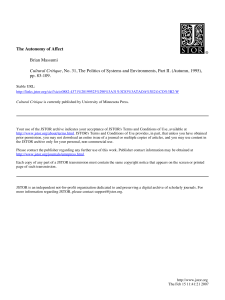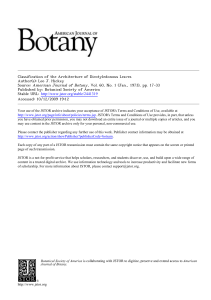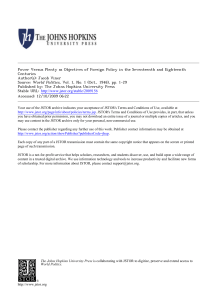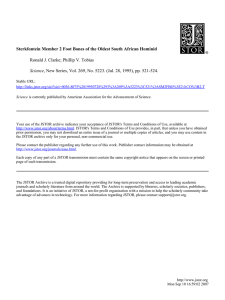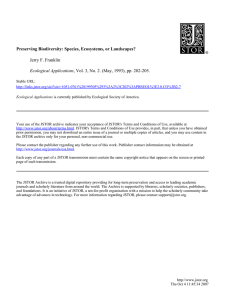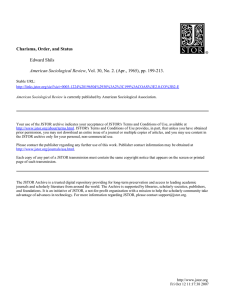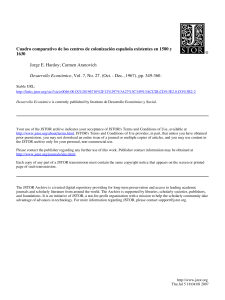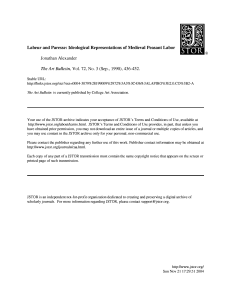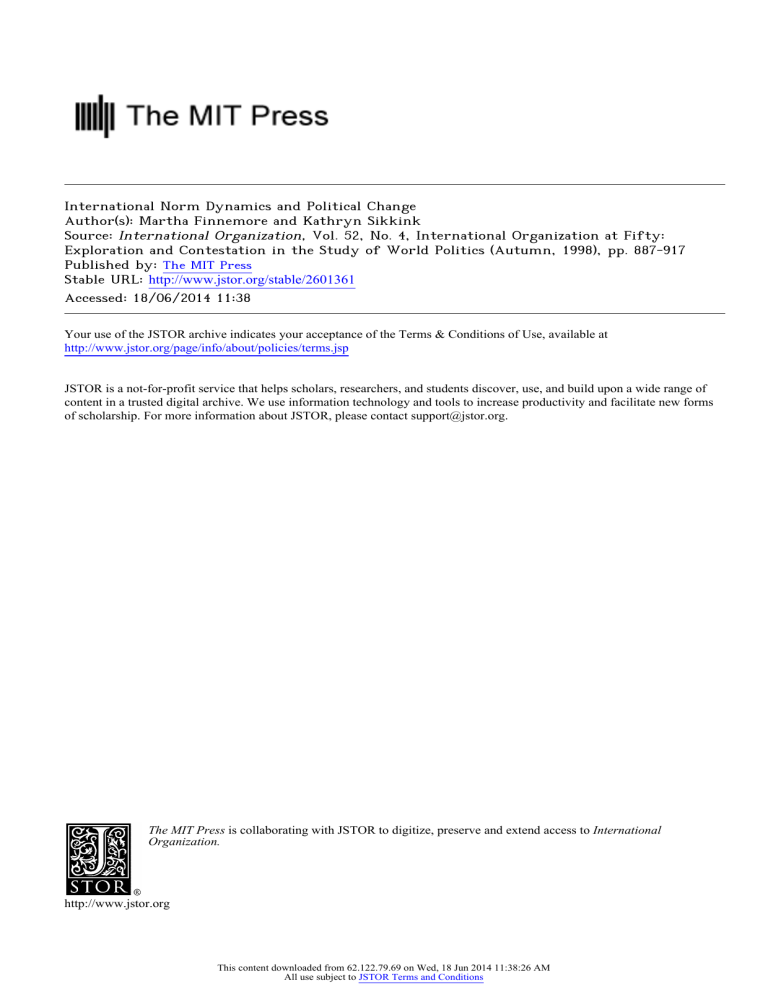
International Norm Dynamics and Political Change Author(s): Martha Finnemore and Kathryn Sikkink Source: International Organization, Vol. 52, No. 4, International Organization at Fifty: Exploration and Contestation in the Study of World Politics (Autumn, 1998), pp. 887-917 Published by: The MIT Press Stable URL: http://www.jstor.org/stable/2601361 . Accessed: 18/06/2014 11:38 Your use of the JSTOR archive indicates your acceptance of the Terms & Conditions of Use, available at . http://www.jstor.org/page/info/about/policies/terms.jsp . JSTOR is a not-for-profit service that helps scholars, researchers, and students discover, use, and build upon a wide range of content in a trusted digital archive. We use information technology and tools to increase productivity and facilitate new forms of scholarship. For more information about JSTOR, please contact support@jstor.org. . The MIT Press is collaborating with JSTOR to digitize, preserve and extend access to International Organization. http://www.jstor.org This content downloaded from 62.122.79.69 on Wed, 18 Jun 2014 11:38:26 AM All use subject to JSTOR Terms and Conditions InternationalNormDynamics and PoliticalChange Sikkink andKathryn MarthaFinnemore thestudyofinternational andideationalconcernshave alwaysinformed Normative Organithrough thelifeofInternational threadrunning politicsandarea consistent realistviews of politics,whilerejecting zation.WhenIO was founded,dominant and ideology.The idealism,wereverymuchconcernedwithissues of legitimacy earlyCold War,afterall, was notsimplya positionalconflictamonganonymous greatpowers:it was a war for"heartsand minds."The couplingof powerwith policyof thisperiod.' socialpurpose"was centraltoAmericanforeign "legitimate two of the At the same time,international relationsscholarswerebusystudying anddecolonizasocialconstruction projectsoftheage: Europeanintegration greatest to distancethemliketherealists,wereconsciouslytrying tion.Neofunctionalists, andhiscolleagues), selvesfrom"idealist"predecessors (inthiscase,David Mitrany butthecomplexweboftechnical tasksthattheydesignedaimedatmorethanpromotat ideationaland social ends.Spillingmaterialwell-being;theyaimedultimately technical tasks;itwas supposed overwas supposedtodo morethancreateadditional andaffect Likewise,scholarsrecogtochangeattitudes, amongparticipants. identity, normative agendaand thatit was drivenby a profoundly nizedthatdecolonization ofboththenewstatesandtheirformer theidentities soughttoreconstitute explicitly betweenthem. as wellas therelationships colonizers, inthe1960sand 1970stobuilda scienceofpoliticsmodeledoneconomAttempts andideationalconcernscomics ornaturalscienceneverdisplacedthesenormative in thestreamof critiquesof thedominant pletely.Theyhave surfacedconsistently state-centric paradigmsthatfocusedon materialpower.Scholarsof transnational to transnational actorswho weresometimes relationsin the 1970scalled attention oftheearly1980ssimilarly influenced bynormsandideas.2Theregimesscholarship Elizabeth andEmanuelAdler,MichaelBarnett, tworeviewers, Wewouldliketothankthethreeeditors, Legro,RichardPrice,ThomasRisse,andDaniel Thomasfortheirveryhelpful Boyle,AudieKlotz,Jeff We arealso grateful to JamesFearon,KurtGaubatz,and on variousdrafts of themanuscript. comments relatedtoourwork. andmakingsuggestions sharing manuscripts, questions, JimMorrowforanswering 1. Ruggie1983b. 2. KeohaneandNye 1971. 52,4, Autumn1998,pp. 887-917 Organization International ? 1998byThe 10 Foundation ofTechnology andtheMassachusetts Institute This content downloaded from 62.122.79.69 on Wed, 18 Jun 2014 11:38:26 AM All use subject to JSTOR Terms and Conditions 888 International Organization emphasized theroleofprinciples andnormsin waysthatopenedthedoorfora more sweeping"ideationalturn"inthelate1980s. Elsewherein thisissueJohnRuggie,JamesMarch,andJohanOlsenexplorethe intellectual history of thisrecent"turn"and locateitsproponents in themoreabstracttheoretical debatesof social science.Buildingon theircontributions, we addresstheoretical in empiricalresearchon social issuesfacingthoseofus interested construction processesand norminfluences in international politics.We are concernedwithsuchquestionsas How do we knowa normwhenwe see one?How do we knownormsmakea difference in politics?Wheredo normscomefrom?How do theychange?Weareparticularly interested intherolenormsplayinpoliticalchangeboththeways in whichnorms,themselves, changeand the ways in whichthey in ofthepoliticallandscape.Likeothertheoretical frameworks changeotherfeatures international relations (IR), muchofthemacrotheoretical equipment ofconstructivismis better at explaining to "logstability thanchange.Claimsthatactorsconform ics of appropriateness"3 say littleabouthow standardsof appropriateness might change.SuchstaticapproachestoIR areparticularly unsatisfying duringthecurrent era of global transformation whenquestionsaboutchangemotivatemuchof the empiricalresearchwe do. Lackinggood macrotheoretic guidance,ourapproachto thesequestionsreliesheavilyon induction fromtheextensiveandgrowingbodyof normsresearchthathas sprungup,notjustin politicalscience,butin law,economThisvariety ics, sociology,andpsychology. ofconceptualandempiricalmaterialis usefulforourinductiveenterprise, butit also raisessome important questionsfor thatwe exploreattheendofthearticle. macrotheory We use ourreviewof scholarship in on normsandrelatedideationalphenomena thisarticleto makethreearguments. First,theideational"turn"of recentyearsis to sometraditional concernsofthediscipline, butithas notbrought actuallya return us backtoprecisely thesameplacewe began.Standards forgoodempirical research havechangeddramatically ofIO, andapplying (andforthebetter)sincethefounding to long-standing thesestandards normative issueshas had realpayoffs. Second,we themechaaboutthreeaspectsofnorms-theirorigins, generatesomepropositions nismsbywhichtheyexerciseinfluence, underwhichnormswill andtheconditions in worldpolitics.Specifically, be influential we arguethatnormsevolvein a patterned"lifecycle"andthatdifferent behaviorallogicsdominatedifferent segments ofthelifecycle.Third,we arguethatthecurrent to opposenormsagainst tendency orrationalchoiceis nothelpfulin explaining rationality manyofthemostpolitically social salientprocesseswe see in empiricalresearch-processeswe call "strategic in whichactorsstrategize to reconfigure idenconstruction," rationally preferences, cannotbe separated fromanypolitically tities,orsocialcontext.4 Rationality significantepisodeofnormative influence ornormative conchange,justas thenormative are thus textconditionsany episode of rationalchoice. Normsand rationality butscholarsdisagreeabouttheprecisenatureoftheirrelationintimately connected, 3. MarchandOlsen,thisissue. relations. 4. See Kahler,thisissue,fora history ininternational ofdebatesoverrationality This content downloaded from 62.122.79.69 on Wed, 18 Jun 2014 11:38:26 AM All use subject to JSTOR Terms and Conditions NormDynamicsandPoliticalChange 889 ship.We identify fourfocalpointsof debatewheretherelationship betweennorms and rationality is leastunderstood and mostimportant, and we showhow thesedebatescross-cut research traditions inpotentially fruitful ways. The Returnto Norms Normsandnormative issueshavebeencentraltothestudyofpoliticsforatleasttwo millennia. Students ofpoliticshavestruggled withquestionsnotonlyaboutthemeaningofjusticeandthegoodsocietybutalso abouttheinfluence onhumanbehaviorof ideas aboutjusticeand good. Our conclusions(or ourassumptions) abouttheseissuescondition everyformofpoliticalanalysis.Aristotle andPlatounderstood thisin thefourth B.C.E. just as E. H. Carrdid in thetwentieth century Carrhas century. becomecanonizedin thedisciplineas a debunkerof Wilsonianidealism,butthis simplification hismessage:"Politicalactionmustbe basedon a coormisrepresents dinationofmorality andpower."Realismfails,in Carr'sanalysis,precisely because itexcludesessentialfeatures ofpoliticslikeemotionalappealto a politicalgoal and formoraljudgment.5 Thisconviction grounds thatunderstanding socialpurposeand was essential legitimacy to understanding politicscontinued the1950sand through 1960s and is evidentin thepages of IO. Inis Claude's workon thelegitimation function oftheUnitedNationsdealspreciselywiththisissue.6EarlyIR scholarship on certainissues-decolonization, humanrights, education-recognized thatmuch UN activity involvedestablishing norms,butitoftenfailedto theorizethesenormativeprocesses.7Certainly theworkof theintegration theorists suchas ErnstHaas was implicitly, andoftenexplicitly, aboutcreating sharedsocialpurpose.8 EvenrealistslikeHans Morgenthau wroteextensively aboutthewayin whichideationaland normative factorssuchas nationalism, morality, and international law limitstates' exerciseofpower.9 The "turn"awayfromnormsandnormative concernsbeganwiththebehavioral revolution and itsenthusiasm formeasurement. and ideationalphenomNormative ena weredifficult to measureand so tendedto be pushedaside formethodological reasons.Thistendency was reinforced bytheemerging infatuation ofpoliticalscientistswitheconomicmethodsin thelate 1970sand 1980s.10Realistsbeganrecasting thepursuit ofpoweras "utility maximization" and,following theeconomists, tended to specifyutility in materialtermsonly.Liberalsdrewon microeconomic functions analysesofcollectiveactiongames(Prisoners' Dilemma,StagHunt)toreinvigorate theirlong-standing debatewithrealistsandshowthatcooperation, welfareimprove5. Carr[1946] 1964,97, 89. 6. Claude 1966. 7. See Kay 1967;Henkin1965;Jacobson1962;andBall 1961. 8. Haas 1961,1964a.Foran argument relatedto someconcernsofthisarticle,see Haas 1993. 9. Morgenthau [1948] 1985,pt.5, 6. 10. Fora discussionaboutthecausesandeffects ofthedominance ofeconomicmodelsandmethods in thestudyofU.S. politics,see Lowi 1992;Simon1993a;Lowi 1993a,b;andSimon1993b. This content downloaded from 62.122.79.69 on Wed, 18 Jun 2014 11:38:26 AM All use subject to JSTOR Terms and Conditions 890 International Organization and"progress" werepossibleevengivensomeofrealism'spessimistic ment, assumptionsaboutself-seeking humannature.In fact,these"neos,"bothrealistandliberal, mightmoreappropriately be called "econorealists" and "econoliberals," sincewhat was newinbothcases was an injectionofmicroeconomic insights.'1 Althoughthemoveto rationalchoicein no way requireda moveto a material itsproponents showedlittleinterest inideationalorsocialphenomena, ontology, and in these studyoftheseissueslanguished duringthisperiod.However,wheninterest matters revivedin the1980s,first withtheregimesprojectl2 andlaterwiththeconstructivists led by JohnRuggie,FriedrichKratochwil, AlexanderWendt,and othhad changedin important ers,'3thedisciplineto whichnormsreturned ways.Aland the"economicturn"of the 1970sand 1980s thoughthebehavioralrevolution contributions scholarsto mayhaveneglected norms, theymadeimportant byforcing thinkmuchmorerigorously aboutissuesofresearch discidesign,theoretical clarity, plinary cumulation, andparsimony. As contemporary researchers maketheirarguments aboutnorms, andideas, culture, theywill need to specifyideationalcausal claimsand mechanisms clearly,think on whichtheoretical claimsaboutnormsrest, seriouslyaboutthemicrofoundations andevaluatethoseclaimsin thecontextofcarefully andempiridesignedhistorical cal research.'4 David Lumsdaine'sanalysisof therole of morality in international fromCarr's.Carrusesevidenceanecdotally to politics,forexample,is verydifferent illustrate his arguments aboutthemoralcharacter of "the ordinary man" and the The resultis a brilliant politicalconsequencesof thatmorality. piece of political butone vulnerableto chargesof wishfulthinking, sinceCafrprovidesno thought evidencethathumanbeingsactuallydo behaveas his "ordinary systematic man"" does and notaccordingto someotherconceptionof humannature.Lumsdaine,by offers evidencethatmorality role contrast, systematic actuallydoesplaya significant inforeign aid byexamining fromalternative predictions explanations andcompiling extensiveevidence,bothquantitative and qualitative, to arbitrate amongexplanato alternative tions.'5The same attention explanations, rigorousstandardsof evihas characterized remicrofoundations thearticle-length dence,andsocialtheoretic searchon normsinIO on suchissuesas theendofapartheid in SouthAfrica,theend of theCold War,prohibitions againstcertainkindsof weapons,theend of slavery, and otherprohibition regimes.'6In a widevarietyof issueareas,normsresearchers have madeinroadspreciselybecausetheyhave been able to provideexplanations substantiated byevidenceforpuzzlesin international politicsthatotherapproaches hadbeenunabletoexplainsatisfactorily. 11. See also Ruggie,thisissue. 12. Krasner1983b. 13. See Kratochwil andRuggie1986;Wendt1987;Dessler1989;Kratochwil 1989;andAdler1997. 14. Readersshouldnotethatwe use ideational"causation"hereina waythatrecognizesthatideasand normsareoftenreasonsforactions,notcausesinthephysicalsenseoftheword.See Ruggie,thisissue. 15. Lumsdaine1993. 16. See Klotz 1995a;Risse-Kappen1994;Price1995;Ray 1989;andNadelmann1990. This content downloaded from 62.122.79.69 on Wed, 18 Jun 2014 11:38:26 AM All use subject to JSTOR Terms and Conditions NormDynamicsandPoliticalChange 891 Normsare no easierto measuretodaythantheywerein the1930sor 1960s,but conceptualprecisionis essentialforbothmeaningful theoretical debateand defensibleempiricalwork.In theremainder ofthissectionwe takeup threeissueswhere conceptualclarification seemsmostpressing andmostpossible:definitions, therelabetweendomesticandinternational tionship andwhether normsareagentsof norms, orchange. stability Definitions Thereis generalagreement on thedefinition of a normas a standard of appropriate behaviorforactorswitha givenidentity,17 buta number ofrelatedconceptualissues in politicalscience stillcause confusionand debate.First,whereasconstructivists talka languageof norms,sociologiststalka languageof "institutions" to referto thesesamebehavioralrules.Thus,elsewherein thisissueMarchand Olsen define "institution" as "a relatively stablecollectionofpracticesandrulesdefining appropriatebehaviorforspecificgroupsofactorsin specificsituations."18One difference between"norm"and "institution" the (in thesociologicalsense) is aggregation: normdefinition isolatessinglestandards ofbehavior, whereasinstitutions emphasize thewayin whichbehavioralrulesarestructured andinterrelate together (a "collectionof practicesand rules").The dangerin usingthenormlanguageis thatit can andinterrelated ifnotusedcarefully. obscuredistinct elementsofsocialinstitutions For example,politicalscientists tendto slip intodiscussionsof "sovereignty" or wheninfacttheyare(orwere)collections ofnorms "slavery"as iftheywerenorms, andthemixofrulesandpracticesthatstructure theseinstitutions has variedsignifiover time.19 Used cantly carefully, however, normlanguagecanhelptosteerscholars towardlookinginsidesocial institutions of social and considering thecomponents as wellas thewaytheseelements institutions arerenegotiated intonewarrangements ofpolitics.20 overtimetocreatenewpatterns across have different ofnorms. Scholars disciplines recognized typesorcategories common is order The most distinction betweenregulative and connorms,which strainbehavior, andconstitutive whichcreatenewactors,interests, orcategonorms, riesofaction.21 Somescholarshavealso discusseda category ofnormscalledevalubutthesehavereceivedmuchless attention ativeorprescriptive norms, and,indeed, areoftenexplicitly fromanalysis.22 Thislackofattention is puzzling,sinceit omitted is preciselytheprescriptive (or evaluative)qualityof "oughtness"thatsetsnorms of "appropriate" or apartfromotherkindsofrules.Becausenormsinvolvestandards boththeintersubjective andtheevaluativedimensions areines"proper"behavior, to capablewhendiscussingnorms.We onlyknowwhatis appropriate byreference 17. See Katzenstein 1996b,5; Finnemore 1996a,22; andKlotz 1995b. 18. MarchandOlsen,thisissue. 19. Krasner1984,1988,1993;Thomson1994;Strang1991;Ruggie1993;andSpruyt1994. 20. Foran excellentdiscussionoftheseissues,see Jepperson 1991. 21. Ruggie,thisissue;Searle 1995;Katzenstein 1996b;andWendtforthcoming. 22. Gelpi 1997.See, forexample,thetreatment in Katzenstein 1996b,5, fnl2. This content downloaded from 62.122.79.69 on Wed, 18 Jun 2014 11:38:26 AM All use subject to JSTOR Terms and Conditions 892 International Organization or a society.We recognizenorm-breaking behavior thejudgmentsof a community because it generatesdisapprovalor stigmaand normconforming behavioreither becauseitproducespraise,or,in thecase ofa highlyinternalized norm,becauseitis so takenforgrantedthatit provokesno reactionwhatsoever.23 Thus,JamesFearon arguesthatsocialnormstakethegenericform"Good peopledo (ordo notdo) X in situations A, B, C . . ." because"we typically do notconsidera ruleofconducttobe a social normunlessa sharedmoralassessmentis attachedto its observanceor non-observance.'"24 One logicalcorollaryto theprescriptive qualityof normsis that,by definition, thereare no bad normsfromthevantagepointof thosewho promotethenorm. divine Normsmostof us wouldconsider"bad"-norms aboutracial superiority, right, imperialism-were oncepowerful becausesomegroupsbelievedintheappropriateness(thatis, the "goodness") of thenorm,and otherseitheracceptedit as obviousorinevitable orhadno choicebutto acceptit.Slaveholders andmanynonslaveholders believedthatslaverywas appropriate behavior;without thatbelief,the institution ofslaverywouldnothavebeenpossible. Giventhisdiscussion, we canbegintoanswertheessentialresearch question:how do we knowa normwhenwe see one?We can onlyhaveindirect evidenceofnorms forpolitical just as we can onlyhave indirect evidenceof mostothermotivations emaction(interests orthreats, forexample).However,becausenormsbydefinition bodya qualityof "oughtness" andsharedmoralassessment, normsprompt justificationsforactionandleavean extensive trailofcommunication amongactorsthatwe can study. Forexample,theUnitedStates'explanations aboutwhyitfeelscompelled to continueusinglandminesin SouthKorearevealthatit recognizestheemerging normagainsttheuse of suchmines.If notforthenorm,therewouldbe no needto mention, explain,orjustifytheuse of minesin Korea at all. Notethatwe separate normexistenceor strength fromactualbehavioralchangein ouroperationalization. Becauseonecentral is theeffect ofnormson statebehavquestionofnormsresearch to operationalize a normin a waythatis distinct fromthestateor ior,itis important nonstate behavioritis designedto explain.25 Normsas sharedassessments raisethequestionofhowmanyactorsmustsharethe beforewe call it a norm.In partthisis a questionof empiricaldomain. assessment Normsmaybe regional,forexample,butnotglobal.Even withina community, normsare "continuous, thandichotomous, rather entities.... [They]comein varynormscommanding levelsofagreement.26 We ingstrengths" withdifferent different thedynamics ofthisagreement arguethatonewaytounderstand processis byexamamonga iningwhatwe call the "life cycle" of norms.We showhow agreement criticalmassofactorson someemergent normcan createa tipping pointafterwhich 23. For a particularly good discussionof theway in whichconventions producejudgments of social see Sugden1989.See also Elster1989a,c;andSunstein1997. "oughtness"andmorality, 24. Fearon1997,25, fnl8. 25. Legro1997. 26. Ibid.,33. This content downloaded from 62.122.79.69 on Wed, 18 Jun 2014 11:38:26 AM All use subject to JSTOR Terms and Conditions NormDynamicsandPoliticalChange 893 agreement becomeswidespread in manyempirical cases,andwe providesomesuggestionsaboutcommonfeatures of "criticalmass." ConnectingDomestic and InternationalNorms In thisarticlewe are concernedwithinternational or regionalnormsthatset standardsfortheappropriate behaviorofstates.27 Domesticnorms,however,aredeeply entwined withtheworkings ofinternational norms.Manyinternational normsbegan as domesticnormsandbecomeinternational through theefforts ofentrepreneurs of variouskinds.Women'ssuffrage, forexample, beganas a demandfordomestic change In withina handfulof countriesand eventually norm.28 becamean international of their filter addition, international normsmustalwayswork influence through the in can variations domesticstructures anddomesticnorms,which produceimportant and of in where it compliance interpretationthesenorms.29 Even situations might whatwe appearatfirst glancethatinternational normssimplytrump domesticnorms, a minoroftensee is a processbywhichdomestic"normentrepreneurs" advocating itypositionuse international normsto strengthen theirpositionin domesticdebates. In otherwords,thereis a two-levelnormgameoccurring in whichthedomesticand theinternational normtablesareincreasingly linked.30 We arguelater,however, that all thesedomesticinfluences are strongest at theearlystageof a norm'slifecycle, and domesticinfluences lessensignificantly once a normhas becomeinstitutionalized intheinternational system. in the Recentworkin U.S. legalcirclesalso suggeststhatthereis moresimilarity way normsand law workdomestically and internationally thanIR scholarshave IR scholarshave generallyassumedthattheexistenceof a coercivestate thought. able to enforcelaws madedomesticorderverydifferent frominternational order.A ofChicago,however, nowargue prominent groupoflegalscholarsattheUniversity that,evenwithina domesticsetting, makingsuccessfullaw and policyrequiresan ofthepervasiveinfluence of social normsofbehavior.Thisis a parunderstanding forIR scholars,sincetheinternational ticularly compelling insight systemis characwithout directpunitivecapacity.The processes terizedbylaw andnormsoperating whichtheselegal scholarsclaimthatnormsworkdomestically-involving through normentrepreneurs, "normcascades,"and "normbandwagons"-areenimitation, withtheresearchdoneon normsby scholarsin IR and suggestthat tirelyconsistent IR normsresearchmightalso learnfromdomesticanalogies.For example,thenorin theUnitedStates whichSoutherngentlemen mativeand legal processthrough be forthinking about stoppeddueling,examinedbyLawrenceLessig,may relevant on domesticpolitics,see Kier 1997;Johnston 27. Foranalysesofdomesticnormsandtheirinfluence as 1995a; Katzenstein1996a, 1993; and Berger1998. For a critiqueof thisemphasison international opposedtodomesticnorms,see Checkel1998. 28. Dubois 1994. 29. See Risse-Kappen1995b;andRisse,Ropp,andSikkinkforthcoming. andPutnam1993. 30. See Putnam1988;andEvans,Jacobson, This content downloaded from 62.122.79.69 on Wed, 18 Jun 2014 11:38:26 AM All use subject to JSTOR Terms and Conditions 894 International Organization intheinternational whatkindsofnormsandrulescouldlead toa decreaseinconflict system.3' VersusChange Stability has providedgood explanations of theway normsproduce Macro-leveltheorizing Normschanneland regularizebehavior;theyoftenlimit social orderand stability. Froma constructivist perspective, interactions.32 therangeofchoiceandconstrain of ideas.33Shared is determined by theinternational distribution nationalstructure andbeliefsaboutappropriate behaviorare whatgivetheworld ideas,expectations, Theproblemforconstructivists thusbecomesthesame structure, order,andstability. structure, change.In an ideationalinternational problemfacingrealists-explaining Norm idea shiftsand normshiftsare themainvehiclesforsystemtransformation. whatchangesin thebalanceofpowerare to the shiftsareto theideationaltheorist realist. of system thepossibility JohnRuggiearguesin thisissuethat"havingidentified inthemacrolevel,corresponding micropractices thatmayhavetranstransformation and inventoried." The followingsectionis an formative effects mustbe identified attempt toidentify thesepractices. Evolutionand InfluenceofNorms of In thissectionwe advancesomepropositions about(1) theoriginsor emergence stateandnonwhichnormsinfluence international norms,(2) theprocessesthrough We illusand(3) whichnormswillmatter andunderwhatconditions. statebehavior, tratethearguments withmaterial drawnfromtwomajorissueareas:women'srights, andlaws ofwar.International normsaboutwomen'srights often especiallysuffrage, cameintodirectcompetition withstrongly helddomesticnorms,and,typically, there inthepromotion was no self-evident state"interest" ofsuchnorms.Although topics OrgarelatedtogenderandwomenhavebeenabsentfromthepagesofInternational of halfof nization,34thesuffrage campaignled to theformalpoliticalparticipation theworld'spopulation andtherefore seemsworthy ofstudy. Laws ofwarallowus to discusstheimpactofnormswherewe mightleastexpectit-the traditional security 31. See Sunstein1997;andLessig 1995.Foran interesting journalist's overview, see Rosen 1997. 32. See Katzenstein1996a,3; and Sunstein1997,40. Even Waltz,in his discussionof socialization, saysthatnormsencourageconformity andthat"socializationreducesvariety." Waltz1979,76. 33. Wendt1992andforthcoming. haspublishedonlyone articleon anyissuerelated 34. In itsfirst fifty yearsInternational Organization to genderor women,CraigMurphy'sreviewessayon genderand international relations;Murphy1996. We suggestthattheremayhave been a well-internalized norm(witha taken-for-granted quality)that researchon genderandwomendid notconstitute an appropriate topicforinternational relationsscholarship.Notethatas withanywell-internalized norm,thisdoes notimplythattheeditorsself-consciously rejectedarticleson gender-related topics.To thecontrary, we knowa strong normis ineffect whenitdoes notoccurto authorsto writeon thetopicor submitarticlesbecauseit is notgenerally understood as an appropriate topic. This content downloaded from 62.122.79.69 on Wed, 18 Jun 2014 11:38:26 AM All use subject to JSTOR Terms and Conditions NormDynamicsandPoliticalChange 895 in an area perceivedas essentialto field,wheresuchnormslimitstatediscretion andsecurity. nationalsovereignty TheNorm"LifeCycle" Norminfluence maybe understood as a three-stage process.As shownin Figure1, thefirststageis "normemergence";thesecondstageinvolvesbroadnormacceptance,whichwe term,followingCass Sunstein,35 a 4normcascade"; and thethird The firsttwo stagesare dividedby a threshold stageinvolvesinternalization. or stateactorsadoptthenorm.This "tipping"point,atwhicha criticalmassofrelevant ofnorminfluence has beenfoundindependently in workon socialnormsin pattern or "world U.S. legal theory, researchby sociology'sinstitutionalists quantitative andvariousscholarsofnormsin IR.36The pattern is important for polity"theorists, researchers tounderstand becausedifferent socialprocessesandlogicsofactionmay be involvedat different debates stagesin a norm's"life cycle."Thus,theoretical aboutthedegreeto whichnorm-based behavioris drivenbychoiceorhabit,specificationissuesaboutthecostsofnorm-violation orbenefits fromnormadherence, and relatedresearchissuesoftenturnoutto hingeon thestageof thenorm'sevolution one examines.Changeat each stage,we argue,is characterized by different actors, andmechanisms ofinfluence. motives, Thecharacteristic mechanism ofthefirst is persuasion stage,normemergence, by normentrepreneurs. Normentrepreneurs toconvincea criticalmassofstates attempt morebya (normleaders)to embracenewnorms.The secondstageis characterized as thenormleadersattempt to socializeotherstatestobecome dynamicofimitation The exactmotivation forthissecondstagewherethenorm"casnormfollowers. cades" through therestof thepopulation(in thiscase, of states)mayvary,butwe ofpressureforconformity, arguethata combination desireto enhanceinternational and thedesireof stateleadersto enhancetheirself-esteem legitimation, facilitate normcascades.At thefarend of thenormcascade,norminternalization occurs; normsacquirea taken-for-granted ofbroadpublic qualityandareno longera matter debate.Forexample,fewpeopletodaydiscusswhether womenshouldbe allowedto vote,whetherslaveryis useful,or whethermedicalpersonnelshouldbe granted immunity duringwar.Completionof the "lifecycle" is notan inevitableprocess. normsfail to reacha tippingpoint,and laterwe offerarguments Manyemergent aboutwhichnormsaremorelikelyto succeed.Internalized orcascadingnormsmay becometheprevailingstandardof appropriateness eventually againstwhichnew normsemergeandcompeteforsupport. Researchon women'ssuffrage globallyprovidessupportfortheidea of thelife ofnormative cycleofnormsandthenotionofa "tippingpoint"orthreshold change. cenAlthoughmanydomesticsuffrage wereactivein thenineteenth organizations 35. Sunstein1997. 36. See Sunstein1997;MeyerandHannan1979;Bergesen1980;Thomaset al. 1987;andFinnemore 1993. This content downloaded from 62.122.79.69 on Wed, 18 Jun 2014 11:38:26 AM All use subject to JSTOR Terms and Conditions 896 International Organization "Norm cascade" Norm emergence Stage1 Tipping point Internalization Stage2 Stage3 FIGURE 1. Normlifecycle itwas notuntil1904,whenwomen'srights tury, advocatesfoundedtheInternational Women'sSuffrage Association(IWSA), thatan international campaignforsuffrage was launched.In fact,rather thana singleinternational campaignforwomen'ssuffrage,therewerethreeorfouroverlapping campaignswithdifferent degreesofcooracquisition ofsuffrage rights dination.37 A quantitative analysisofthecross-national revealsa different dynamic atworkforearlyandlateadopters ofwomen'ssuffrage.38 Priortoa threshold without pointin 1930,no country hadadoptedwomen'ssuffrage fromdomesticsuffrage Between1890and1930,Weststrong pressure organizations. erncountries withstrongnationalwomen'smovements weremostlikelyto grant camefromtheUnited femalesuffrage. Althoughsomeoriginalnormentrepreneurs Statesand theUnitedKingdom,thiswas nota case of "hegemonicsocialization," Finsincethefirststatesto grantwomentherightto vote(New Zealand,Australia, land)werenothegemons, andtheUnitedStatesandtheUnitedKingdomlaggedten to twentyyearsbehind.After1930,international and transnational influences becomefarmoreimportant fornormadoption,andcountries thandomesticpressures eventhoughtheyfacedno domesticpressuresto do so. adoptedwomen'ssuffrage Forwomen'ssuffrage, thefirst stageofnormemergence lastedovereightyyears:it in 1848until1930fortwenty tookfromtheSenecaFalls Conference statesto adopt In thetwenty women'ssuffrage. some yearsthatfollowedthetipping point,however, countries forty-eight adoptedwomen'ssuffrage norms.39 workhas Stage 1: Originsor emergenceof norms. Althoughlittletheoretical focusedexclusively on theprocessof "normbuilding," theaccountsofnormorigins in moststudiesstresshumanagency,indeterminacy, chanceoccurrences, andfavorfrom able events,usingprocesstracingor genealogyas a method.40 Generalizing theseaccounts,twoelementsseemcommonin thesuccessfulcreationofmostnew norms: normentrepreneurs andorganizational from whichentrepreneurs act. platforms NORMENTREPRENEURS. Norms donotappearoutofthinair;theyareactively builtby notionsaboutappropriate ordesirablebehaviorintheircommuagentshavingstrong normsthatmedicalpersonnel andthosewoundedinwarbe treated as nity.Prevailing of one man,a Genneutralsand noncombatants are clearlytraceableto theefforts 37. 38. 39. 40. See Dubois 1994;andBerkovitch 1995. Ramirez,Soysal,andShanahan1997. Ibid. See KowertandLegro1996;andPrice1995. This content downloaded from 62.122.79.69 on Wed, 18 Jun 2014 11:38:26 AM All use subject to JSTOR Terms and Conditions NormDynamicsandPoliticalChange 897 evese Swiss bankernamedHenryDunant.Dunanthad a transformative personal experienceat thebattleof Solferinoin 1859 and helpedfoundan organization to promotethiscause (whatbecametheInternational Committee of theRed Cross) through an international treaty (thefirst GenevaConvention). The international camwas similarly paignforwomen'ssuffrage indebtedto theinitialleadershipof such normentrepreneurs as ElizabethCady StantonandSusanB. Anthony in theUnited Statesand MillicentGarrett Fawcettand EmmelinePankhurst in England.Bothof thesecases areconsistent withthedescription EthanNadelmanngivesof "transnawho engagein "moralproselytism."'41Legal theorist tionalmoralentrepreneurs" Lessig uses theterm"meaningmanagers"or "meaningarchitects" to describethe samekindof agencyin theprocessof creatingnormsand largercontextsof social meaning.42 Normentrepreneurs arecriticalfornormemergence becausetheycall attention to issuesoreven "create"issuesbyusinglanguagethatnames,interprets, anddramatizesthem.Social movement theorists referto thisreinterpretation orrenaming process as "framing."43 The construction ofcognitive framesis an essentialcomponent ofnormentrepreneurs' politicalstrategies, since,whentheyare successful, thenew framesresonatewithbroaderpublicunderstandings andareadoptedas newwaysof talkingaboutandunderstanding issues.In constructing theirframes, normentrepreneursfacefirmly embeddedalternative normsandframesthatcreatealternative perceptionsofbothappropriateness and interest. In thecase of theRed Cross,Dunant andhiscolleagueshadto persuademilitary notto treatvaluablemedicommanders cal personnel andresourcestheycapturedas spoilsofwar,tobe treatedas theysaw fit.In thecase of women'ssuffrage and laterwomen'srights, normentrepreneurs encountered alternative normsaboutwomen'sinterests andtheappropriate rolefor women.In otherwords,new normsneverentera normative vacuumbutinstead emergein a highlycontested normative space wheretheymustcompetewithother normsandperceptions ofinterest. Thisnormative contestation has important forourunderstandings implications of thewaysinwhicha "logicofappropriateness" relatestonorms.44Efforts topromote a new normtakeplace withinthestandards of "appropriateness" definedby prior norms.To challengeexistinglogics of appropriateness, activistsmay need to be explicitly "inappropriate." chainedthemselves to fences,wenton hunSuffragettes brokewindowsof government ger strikes, buildings,and refusedto pay taxesas waysofprotesting theirexclusionfrompoliticalparticipation. Deliberately inappropriateacts (suchas organizedcivil disobedience),especiallythoseentailingsocial orlegalpunishment, ostracism canbe powerful toolsfornormentrepreneurs seeking to senda messageandframean issue.Thus,at thisemergent stageof a norm'slife 41. Nadelmann1990. 42. Lessig 1995. 43. David Snow has called thisstrategic activity framealignment-"byrendering eventsor occurrencesmeaningful, frames function toorganizeexperience andguideaction,whether individual orcollective."Snowetal. 1986,464. 44. MarchandOlsen 1989,andthisissue. This content downloaded from 62.122.79.69 on Wed, 18 Jun 2014 11:38:26 AM All use subject to JSTOR Terms and Conditions 898 International Organization TABLE 1. Stagesofnorms Stage 1 Norm emergence Stage 2 Normcascade Stage 3 Internalization Actors NormentrepreneursStates,internationalLaw,professions, withorganizational organizations, bureaucracy platforms networks Motives Altruism, empathy, Legitimacy, ideational, reputation, esteem commitment Dominant Persuasion mechanisms Conformity Socialization, Habit, institutionalization, institutionalization demonstration cycle,invoking a logicofappropriateness to explainbehavioris complicated bythe factthatstandards ofappropriateness areprecisely whatis beingcontested. Giventhecostsofinappropriate actionandmanyofthepersuasivetoolstheyuse, one has to wonderwhatcouldpossiblymotivate normentrepreneurs (see Table 1). Obviouslytheanswervarieswiththenormandtheentrepreneur, butformanyofthe socialnormsofinterest topoliticalscientists, itis verydifficult toexplainthemotivationsof normentrepreneurs without reference and ideational to empathy, altruism, in ancommitment. Empathyexistswhenactorshavethecapacityforparticipating other'sfeelingsor ideas. Such empathymaylead to empathetic interdependence, whereactors"areinterested inthewelfareofothersforitsownsake,evenifthishas no effect ontheirownmaterial orsecurity."45 existswhenactors well-being Altruism harm another evenat theriskofsignificant actuallytake"actiondesignedtobenefit totheactor'sownwell-being."46 KristenMonroearguesthattheessenceor "heart" of altruism is a "sharedperception of commonhumanity. . .. a verysimplebut deeplyfeltrecognition thatwe all sharecertaincharacteristics and are entitledto certainrights, Ideationalcommitment merelybyvirtueofourcommonhumanity."47 is themainmotivation whenentrepreneurs promotenormsor ideas because they believein theidealsand valuesembodiedin thenorms,eventhoughthepursuitof thenormsmayhaveno effect on theirwell-being. as Of course,manynormentrepreneurs do notso muchactagainsttheirinterests theyactin accordancewitha redefined oftheirinterests. understanding Suffragists, 45. See Keohane1984,chap.7; Keohane1990a;andMansbridge1990. 46. Monroe1996.See also OlinerandOliner1988. 47. Monroe1996,206. This content downloaded from 62.122.79.69 on Wed, 18 Jun 2014 11:38:26 AM All use subject to JSTOR Terms and Conditions NormDynamicsandPoliticalChange 899 forexample,wereworking on behalfofa coherent ofwomen'spolitical conception interests, butit was notan understanding initiallysharedby thegreatmajority of womenin theworld.Womenhadtobe persuadedthatitwas indeedintheirinterests to pursuesuffrage. theRed Cross had to persuademilitary Similarly, leadersthat thewoundedwas compatible withtheirwaraims. protecting ORGANIZATIONALPLATFORMS. All normpromoters at theinternational levelneedsome kindof organizational fromand through whichtheypromotetheirnorms. platform Sometimes theseplatforms forthepurposeofpromoting areconstructed specifically thenorm,as aremanynongovernmental organizations (NGOs) (suchas Greenpeace, theRed Cross,andTransafrica) and thelargertransnational of advocacynetworks whichtheseNGOs becomea part(suchas thosepromoting humanrights, environmentalnorms,and a ban on land minesor thosethatopposedapartheid in South Africa).48 Often,however, workfromstanding entrepreneurs international organizationsthathavepurposesandagendasotherthansimplypromoting onespecificnorm. Thoseotheragendasmayshapethecontent ofnormspromoted by theorganization significantly.49 The structure oftheWorldBankhasbeenamplydocumented toeffect thekindsofdevelopment normspromulgated fromthatinstitution; itsorganizational theprofessions fromwhichit recruits, structure, and itsrelationship withmember statesand privatefinanceall filter thekindsof normsemerging fromit.50The UN, has distinctive similarly, structural features thatinfluence thekindsofnormsitpromulgatesaboutsuchmattersas decolonization, and humanitarian resovereignty, 1 Thetripartite lief.5 structure oftheInternational LaborOrganization, whichincludes laborand businessas well as states,strongly influences thekindsof normsit promotesandthewaysitpromotes them.52 One prominent feature ofmodernorganizations andan important sourceofinfluenceforinternational inparticular is theiruseofexpertise organizations andinformationto changethebehaviorof otheractors.Expertise,in turn,usuallyresidesin and a numberof empiricalstudiesdocumenttheways thatprofesprofessionals, sionaltraining ofbureaucrats intheseorganizations of helpsorblocksthepromotion newnormswithinstanding PeterHaas's studyof thecleanupof the organizations. Mediterranean showshowecologistsweresuccessful inpromoting theirnormsover others'in partbecausetheywereable to persuadegovernments to createnewagencies to deal withthecleanupand to staffthosepostswithlike-minded ecologists. StudiesoftheWorldBanksimilarly document a strong roleforprofessional training in filtering thenormsthatthebankpromotes. In thiscase, theinability to quantify associatedwithantipoverty manycostsandbenefits andbasic humanneedsnorms 48. 49. 50. 51. 52. See Sikkink1993a;KeckandSikkink1998;Klotz1995a,b;andPrice1997. See StrangandChang1993;Finnemore 1996a;Adler1992;andIkenberry andKupchan1990. See Ascher1983;Miller-Adams 1997;Wade 1996b;andFinnemore 1996a. See Barnett1995,1997;McNeely1995;andWeissandPasic 1997. StrangandChang1993. This content downloaded from 62.122.79.69 on Wed, 18 Jun 2014 11:38:26 AM All use subject to JSTOR Terms and Conditions 900 International Organization thebank,becauseprojects createdresistanceamongthemanyeconomistsstaffing promoting thesenormscouldnotbe justified on thebasisof "good economics."53 Whatevertheirplatform, normentrepreneurs and theorganizations theyinhabit usuallyneedto securethesupportof stateactorsto endorsetheirnormsand make normsocialization a partoftheiragenda,anddifferent organizational platforms providedifferent kindsoftoolsforentrepreneurs todo this.54 International organizations liketheUN andtheWorldBank,thoughnottailoredto normpromotion, mayhave theadvantageofresourcesandleverageoverweakordevelopingstatestheyseekto convertto theirnormative convictions. Networksof NGOs and intergovernmental organizations (IGOs) dealingwithpowerful states,however,arerarelyable to "coto a norm-theymustpersuade.Theymusttakewhatis seen as erce" agreement andconvertitintosomething naturalor appropriate perceivedas wrongor inappropriate.Thisprocessis notnecessarily orentirely intherealmofreason,thoughfacts andinformation tosupport claims.Affect, andprincipled maybe marshaled empathy, ormoralbeliefsmayalso be deeplyinvolved,sincetheultimate goal is notto chalofsomething, itis good,appropriate, and lengethe"truth" butto challengewhether In thesecases, whattheorganizational network deservingof praise.55 providesis information audiencesforthatinformation, andaccesstoimportant especiallymedia anddecisionmakers. In mostcases, foran emergent normto reacha threshold and movetowardthe secondstage,itmustbecomeinstitutionalized in specificsetsof international rules andorganizations.56 Since 1948,emergent normshaveincreasingly becomeinstitutionalizedin international andinbilatlaw,intherulesofmultilateral organizations, eralforeign to thepossibility contributes policies.Such institutionalization strongly fora normcascadebothbyclarifying thenormis andwhatconstitutes what,exactly, violation(oftena matterof somedisagreement amongactors)and by spellingout andsanctionsfor specificprocedures bywhichnormleaderscoordinate disapproval normbreaking. Institutionalization ofnormsaboutbiologicalandchemicalweapons, forexample,has beenessentialto coordinating thenearuniversalsanctionson Iraq theGulfWarandhas enabledstatesto coordinate an invasiveinspections following is nota regimeaimedat securingcompliancewiththosenorms.Institutionalization necessaryconditionfora normcascade,however,and institutionalization mayfolthanprecede,theinitiation ofa normcascade.Women'ssuffrage was not low,rather in intemational institutionalized rulesor organizations priorto thebeginning of the normcascade.The firstintergovernmental agencycreatedto deal withwomen'sissueswas a regionalorganization, theInter-American ofWomen(CIM), Commission in 1928.Although established scholarslocatethetipping pointon women'ssuffrage around1930,thenormcascadedin similarwaysbothinLatinAmerica(whereitwas 53. See Ascher1983;Miller-Adams 1996a. 1997;andFinnemore 54. Paul Wapnerpointsoutthatthereareexceptions to thecentrality ofthestatein theseprocessesin environmental politicswhereactivistslobbypollutingcorporations to bringaboutchange(for directly example,thecampaignagainstMcDonald'sclamshellcontainers foritssandwiches). Wapner1996. 55. Fearon1997. 56. See GoldsteinandKeohane1993b;andKatzenstein 1996b. This content downloaded from 62.122.79.69 on Wed, 18 Jun 2014 11:38:26 AM All use subject to JSTOR Terms and Conditions NormDynamicsandPoliticalChange 901 institutionalized) and in otherplaces aroundtheworldwherewomen'srightswere notsimilarly institutionalized. TIPPING OR THRESHOLD POINTS. Afternormentrepreneurs have persuadeda critical massof statesto becomenormleadersand adoptnewnorms,we can say thenorm reachesa threshold or tippingpoint.Althoughscholarshave providedconvincing quantitative empiricalsupportfortheidea of a normtippingpointand normcascades,theyhavenotyetprovideda theoretical accountforwhynormtipping occurs, norcriteriaforspecifying a prioriwhere,when,and how we wouldexpectit.We proposetwotentative hypotheses aboutwhatconstitutes a "criticalmass"andwhen itis notpossibletopredictexactly andwheretoexpectnormtipping. First,although how manystatesmustaccepta normto "tip" theprocess,because statesare not equal whenit comesto normative weight,empiricalstudiessuggestthatnormtippingrarelyoccursbeforeone-third ofthetotalstatesin thesystemadoptthenorm.57 In thecase of women'ssuffrage, FranciscoRamirez,YaseminSoysal,and Suzanne states(or approximately Shanahanplace thethreshold pointin 1930,whentwenty one-third of thetotalstatesin thesystemat thattime)had acceptedwomen'ssufIn case oflandmines,byMay 1997thenumber ofstatessupporting theban frage.58 on anti-personnel land minesreached60, or approximately one-third of thetotal Afterthatpoint,a normcascadeoccurred, and 124 statesratified statesinthesystem. inDecember1997. theOttawalandminetreaty It also matters whichstatesadoptthenorm.Some statesare criticalto a norm's a "criticalstate"willvaryfromissueto adoption;othersareless so. Whatconstitutes is thatcriticalstatesarethosewithout whichtheachievement issue,butonecriterion ofthesubstantive normgoal is compromised. Thus,inthecase oflandmines,a state thatdid notproduceor use land mineswould nothave been a criticalstate.By thedecisionin mid-1997by Franceand GreatBritain,bothland mines contrast, to support thetreaty couldwellhavecontributed tothenormcascadethat producers, ofthosesametwostateswas simplyessenhappenedinlate1997.59Securingsupport thenormcascadeandnearuniversalacceptanceofthefirst tialtoproducing Geneva in Europe130 yearsearlier.Statesmayalso be "critical"becausethey Convention Forexample,thedecisionofSouthAfricaunderNelson havea certainmoralstature. Mandelato support thelandminetreaty was veryinfluential, especiallywithother statesin Africabutalso globally.60 Althoughcascadesrequiresupportfromsome criticalstates,unanimity amongthemis notessential.For example,afterinitially thenormofbanninglandmines,theUnitedStatesrefusedto support the supporting butthenormcascadednevertheless. treaty, sincemanymoderninternational 57. International law hashadtowrestlewiththisproblemrepeatedly, normsareembodiedin treaties. Treatiesimplicitly recognizethisconceptof criticalmassby specifying thata particular numberof countries mustratify forthetreatyto enterintoforce.Wheretreatiesexist, theentry intoforceofthetreaty maybe a usefulproxyforthecriticalmassnecessaryto saythata norm exists. 58. Ramirez,Soysal,andShanahan1997. 59. Price1998. 60. Ibid. This content downloaded from 62.122.79.69 on Wed, 18 Jun 2014 11:38:26 AM All use subject to JSTOR Terms and Conditions 902 International Organization Stage 2: Normcascades. Up to thetippingpoint,littlenormative changeoccurs withoutsignificant domesticmovements supporting suchchange.Afterthetipping pointhas beenreached,however,a different dynamicbegins.Morecountries begin to adoptnewnormsmorerapidlyevenwithout domesticpressureforsuchchange. Empiricalstudiessuggestthat,atthispoint,oftenan international orregionaldemonstration effect or "contagion"occursin whichinternational andtransnational norm influences becomemoreimportant thandomestic politicsforeffecting normchange.61 we arguethattheprimary Contagion, however,is too passivea metaphor; mechanormcascadesis an activeprocessofinternational nismforpromoting socialization intended to inducenormbreakersto becomenormfollowers.62 KennethWaltzsuggestedsomeof thewayssocializationin occurs:emulation(of heroes),praise(for In thecontext togroupnorms),andridicule(fordeviation).63 behaviorthatconforms of international politics,socializationinvolvesdiplomaticpraiseor censure,either whichis reinforced bilateralor multilateral, by materialsanctionsand incentives. ofnormentrepreNetworks arenottheonlyagentsofsocialization. States,however, neursandinternational organizations also actas agentsofsocialization bypressuring actorstoadoptnewpoliciesandlawsandtoratify treaties andbymonitoring targeted of theRed The International Committee compliancewithinternational standards. ofthefirst didnotdisappearwiththesigning GenevaConvenCross(ICRC) certainly tion.Instead,theICRC becameitschiefsocializingagent,helpingstatestoteachthe andpublinewrulesofwartotheirsoldiers,collecting information aboutviolations, toconfolrm. cizingthemtopressure violators ofa normcascade-the mechanism Socializationis thusthedominant mechanism whichnormleaderspersuadeothersto adhere-butwhatmakessocializathrough tionwork?Whatarethemotivesthatinducestatesopposedtothenormtoadhereand adherequickly?We arguethatstatescomplywithnormsin stage2 forreasonsthat relatetotheiridentities as members ofaninternational society. Recognition thatstate identity fundamentally shapesstatebehavior, andthatstateidentity is,inturn, shaped contextwithinwhichstatesact,has been an important by thecultural-institutional contribution of recentnormsresearch.64 JamesFearonsimilarly arguesthatone's of identity is as a memberof a particular social category, and partof thedefinition thatcategory is thatall members followcertainnorms.65 Whathappensatthetipping pointis thatenoughstatesandenoughcriticalstatesendorsethenewnormto redefineappropriate behaviorfortheidentity called "state"or somerelevantsubsetof states(suchas a "liberal"stateora Europeanstate). To thedegreethatstatesand stateelitesfashiona politicalselfor identity in relationtotheinternational community, theconceptofsocialization suggeststhatthe 61. See Ramirez,Soysal,andShanahan1997;andWhitehead1996. 62. Socializationinvolvesthe "inductionof new members.. . intotheways of behaviorthatare ina society."Barnes,Carter, preferred andSkidmore1980,35. Socializationcanthusbe seenas a mechanismthrough whichnewstatesareinducedtochangetheirbehaviorbyadopting thosenormspreferred by an international societyofstates.See also Risse,Ropp,andSikkink, forthcoming. 63. Waltz1979,75-76. 64. Katzenstein 1996b. 65. Fearon1997. This content downloaded from 62.122.79.69 on Wed, 18 Jun 2014 11:38:26 AM All use subject to JSTOR Terms and Conditions NormDynamicsandPoliticalChange 903 cumulative ofmanycountries ina regionadopting effect newnorms"maybe analogousto 'peerpressure'amongcountries."66 Threepossiblemotivations forrespondingto such"peerpressure"arelegitimation, conformity, andesteem. forstatesand have Scholarshave longunderstood thatlegitimation is important in shapingstatebehavior. recognizedtheroleofinternational sourcesoflegitimation international as "custodians oftheseals Claude,forexample,described organizations ofinternational approvalanddisapproval," andemphasizedtheircrucialrolein establishing and assuringadherence to international norms.67 therearecosts Certainly thatcomewithbeinglabeleda "roguestate"in international sincethis interactions, thepresenceof whichhave been entailsloss of reputation, trust,and credibility, to contribute toPareto-improving effects frominterstate interacamplydocumented thatstatesalso careaboutinternational tion.We argue,though, because legitimation ithasbecomean essentialcontributor heldby toperceptions ofdomesticlegitimacy a state'sowncitizens.Domesticlegitimacy is thebeliefthatexisting politicalinstitutionsare betterthanotheralternatives and therefore deserveobedience.68 Increasingly, citizensmakejudgments theirgovernment aboutwhether is better thanalternativesbylookingatthosealternatives andregionalarena)andby (in theinternational Domesticlegitimaseeingwhatotherpeopleand countries say abouttheircountry. tionis obviouslyimportant becauseitpromotes rules compliancewithgovemment andlaws;rulingbyforcealoneis almostimpossible. Thus,international legitimation is important insofaras itreflects backon a government's domesticbasisoflegitimationandconsentandthusultimately onitsabilityto stayinpower.Thisdynamicwas in SouthAfrica,LatinAmerica,and forregimetransitions partof theexplanation southern Europe.69 and esteemsimilarly involveevaluativerelationships Conformity betweenstates andtheirstate"peers."Conformity involveswhatRobertAxelrodrefersto as "social proof"-statescomplywithnormsto demonstrate thattheyhaveadaptedtothe social environment-that they"belong." "By conforming to theactionsof those aroundus,we fulfill a psychological needtobe partofa group."70 Esteemis related tobothconformity andlegitimacy, butitgoesdeeper,sinceitsuggeststhatleadersof statessometimes follownormsbecausetheywantothersto thinkwell ofthem,and wellofthemselves.71 theywanttothink Social normsaresustained, inpart,by "feelingsofembarrassment, anxiety, guilt,andshamethata personsuffers attheprospect ofviolating them."72 Fearonhas arguedthatidentity is basedon thoseaspectsofthe selfin whichan individual has specialprideorfromwhichan individualgainsselfesteem.73 Thus,thedesireto gainor defendone's prideoresteemcan explainnorm 66. Ramirez,Soysal,andShanahan1997. 67. Claude 1966.For morecontemporary thatintemational arguments organizations continueto play thisrole,see Bamnett 1997,1995;andBarnett andFinnemore 1997. 68. Linz 1978. 69. See Klotz 1995a,b;andWhitehead1996. 70. Axelrod1986,1105. 71. Fearon1997. 72. Elster1989c. 73. Fearon1997,23. This content downloaded from 62.122.79.69 on Wed, 18 Jun 2014 11:38:26 AM All use subject to JSTOR Terms and Conditions Organization 904 International normsassociatedwithliberalism In thissense,statescareaboutfollowing following. they in thesenseofsomething becausebeing"liberalstates"is partoftheiridentity takeprideinorfromwhichtheygainself-esteem. forindividuandesteemarguments ofboththeconformity The microfoundations ofself-esteem researchon theimportance andreston extensive als arepsychological togroupnormsis so strong Thepowerofconformity forindividuals. andconformity thatareobjecwillmakestatements thatindividuals situations in someexperimental In situations where, tivelywrongin orderto avoiddeviatingfromgroupjudgments. areevenmorelikelytoturnto "social is ambiguous, individuals theobjectivereality Theoriesof cognitivedissonancemay reality"to formand evaluatetheirbeliefs.74 behavior.Studies fornorm-conforming also provideinsightsintothemotivations whenpeoplenoticethattheir suggestthatcognitivedissonanceis arousedprimarily The unpleasbehaviorleadstoaversiveconsequencesthatcannotbe easilyrectified. antexperienceof dissonanceleads actorsto reduceitby changingeithertheirattiWe arguethatan analogto thisexistsat thelevel of the tudesor theirbehavior.75 to normsin orderto avoid thedisapprovalarousedby state:stateleadersconform normviolationandthusto enhancenationalesteem(and,as a result,theirownselftogeneralizetothestatelevelfromresearchon esteemdoneat esteem).It is difficult stateleaders individual target frequently theindividual level,butnormentrepreneurs beto discrepancies forcriticism. Because muchnormadvocacyinvolvespointing foraverseconseresponsible tweenwordsandactionsandholdingactorspersonally is thatthey quencesof theiractions,one way to thinkaboutnormentrepreneurs thatprovokecognitive dissonanceamongnorm andpublicity providetheinformation that violators.In theareaofhumanrightsa bodyof empiricalresearchis emerging imageas human suggeststhatsomestateleaderscaredeeplyabouttheirinternational policychangesin orderto changethatimage.76 rightsviolatorsandmakesignificant Stage 3: Internalization. At theextremeof a normcascade,normsmaybecome so widelyacceptedthattheyare internalized by actorsand achievea "taken-forForthis withthenormalmostautomatic. granted"qualitythatmakesconformance normscanbe bothextremely (becausebehavioraccordpowerful reason,internalized ingto thenormis notquestioned)and hardto discern(becauseactorsdo notseritoconform). becausetheyarenotcontroPrecisely ouslyconsiderordiscusswhether ofpoliticaldebateandfor thesenormsareoftennotthecenterpiece versial,however, in sociology, Institutionalists thatreasontendto be ignoredby politicalscientists. oftheir normsthecenterpiece havemademanyofthesemostinternalized however, and "denaturalizandhavedoneus theserviceofproblematizing researchprogram Western normsthatwe takeforgranted-suchas ing"manyofthemostprominent to and individualism. Insteadof trying thoseaboutmarketexchange,sovereignty, in statebehavior, thesescholarsarepuzzledbythedegreeof simiexplainvariation see Eagly and Chaiken1993; on compliancewithsocial norms, 74. For a surveyof thisliterature, in groups,and thenormative ibid.,630-34, 642-44; on self-esteem originsof conformity, conformity ibid.,177-78. maintenance, ibid.,484; on ego defense,ibid.,480-81,576-78; andon self-concept, 75. EaglyandChaiken1993. esp. chap.bySieglindeGranzeron Morocco. 76. See Risse,Ropp,andSikkinkforthcoming, This content downloaded from 62.122.79.69 on Wed, 18 Jun 2014 11:38:26 AM All use subject to JSTOR Terms and Conditions NormDynamicsandPoliticalChange 905 larityor "isomorphism" amongstatesandsocietiesandhowthosesimilarities have forthesesimilarities increasedinrecentyears.Theirexplanations pointtopastnorm or endowingindividuals cascades leadingto statestakingup new responsibilities withnewrights as a matter ofcourse.77 Professions oftenserveas powerfuland pervasiveagentsworkingto internalize normsamongtheirmembers.Professional training does morethansimplytransfer technicalknowledge;itactivelysocializespeopleto valuecertainthingsaboveothers.Doctorsaretrainedto valuelifeabove all else. Soldiersaretrainedto sacrifice lifeforcertainstrategic goals.Economists, ecologists,andlawyersall carrydifferent normative biases systematically instilledbytheirprofessional As statebutraining. andinternational havebecomemoreandmoreprofessionreaucracies organizations alizedoverthetwentieth century, we shouldexpectto see policyincreasingly reflectbiasesoftheprofessions thatstaffdecision-making A ingthenormative agencies.78 a roleforhighlyinternalized numberofempiricalstudieshavealreadydocumented normsheldbyprofessionals determining policy.In additiontotheroleofeconomists attheWorldBankmentioned Anne-Marie earlier, Burley'sworkshowsa crucialrole forlegalprofessional normsincreating thepost-World WarII politicalorder, andher intheEuropeanUnion.79 workwithWalterMattlishowstheirimportance Anotherpowerfuland relatedmechanism to theconsolidation and contributing universalization of normsaftera normcascademaybe iterated behaviorandhabit. Politicalscientists have understood thepowerof thesemechanisms foryearsbut havenotconnected themtheoretically tonormsandsocialconstruction debates.The coreoftheneofunctionalist inEurope,afterall,was that aboutintegration argument interactions frequent amongpeopleinvolving jointworkon technicaltaskswould createpredictability, and habitsof trust.As trustbecamehaultimately stability, and internalized trustwould,in turn,change bitual,it wouldbecomeinternalized affectamongtheparticipants. and changed Changedaffectmeantchangedidentity normsas empathy withothersshifted. andidentification Thus,theengineofintegrationwas indirectand evolutionary. Diplomatictools such as confidence-building measuresandtrack2 diplomacymayfollowa similarlogic.Generalized, thisargumentsuggeststhatroutesto normative changemaybe similarly indirect andevolutionary: procedural changesthatcreatenewpoliticalprocessescan lead to gradual andinadvertent andpoliticalconvergence.80 normative, ideational, WhichNormsMatterUnderWhatConditions? ofnormsresearch Oneofthecommoncriticisms hasbeenthatitprovidesno substantivehypotheses in worldpoliticsand under aboutwhichnormswill be influential 77. See Bergesen1980;Thomasetal. 1987;ScottandMeyer1994;McNeely1995;Meyeretal. 1997; andFinnemore 1996b. 78. See Haas 1989;Ascher1983;Adler1992;Miller-Adams 1997;Finnemore 1995; andBamettand Finnemore 1997. withtheo79. See Burley1993; and Burleyand Mattli1993.Theseempiricalfindings areconsistent reticalarguments madebyDiMaggioandPowell 1983. 80. See also Rosenau1986. This content downloaded from 62.122.79.69 on Wed, 18 Jun 2014 11:38:26 AM All use subject to JSTOR Terms and Conditions 906 International Organization revealsa number whatconditions theywillbe influential. Ourreviewoftheliterature research. ofsuchhypotheses thatcouldbe testedandelaborated infuture fordomestic receptiveLegitimation. Wearguedearlierthatanimportant condition Iflegitimation is a nesstointernational normsis a needforinternational legitimation. mainmotivation fornormative we mightexpectstatestoendorseinternational shifts, ofelitesis threatnormsduringperiodsofdomesticturmoil in whichthelegitimacy or esteem,we wouldexpectstates ened.81If statesseekto enhancetheirreputation thatareinsecureabouttheirinternational toembracenewinternastatusorreputation tionalnormsmosteagerlyandthoroughly. AmyGurowitzhas argued,forexample, international normsaboutrefugees than thatJapanhas beenmoreopentoendorsing politicalleadership hasGermany becauseJapanis "insecure"aboutitsinternational role.8'Dana Eyreand MarkSuchmansimilarlyarguethatdevelopingstatesmay thanfroma utilitarian waradopthigh-tech weaponryoutof statusconcernsrather fighting calculus.83 Prominence. Somedomesticnormsappearmorelikelycandidatesforinternationalizationthanothers.Thiscouldbe due eitherto thequalityofthenormitself(disthenorm.Drawingon natural cussedlater)or to thequalityofthestatespromoting AnnFlorinihasarguedthat"prominence" is animportant characterselectiontheory, thesystem.84 Normsheldby states isticof normsthatare likelyto spreadthrough widelyviewedas successfulanddesirablemodelsarethuslikelyto becomepromiThe factthatWestern normsaremorelikelyto diffuse internationnentanddiffuse. ofadoptionof Thisfitsthepattern allywouldseemto followfromthisobservation. states(though women'ssuffrage sincealmostallthenormleaderswereWestern norms, theUnitedStatesand Britainwerelatecomernormleaders,not earlyones). Jon thatprominence shouldbe seenincultural andeconomicas Elster,however, suggests termssincethereare manyexamplesof countries likeGreeceand well as military Chinathatwereconqueredbutwhosenormswereassimilated bytheirconquerors.85 of the norm. Withinnormsresearch,thereare several Intrinsiccharacteristics itsinfluence. We setsof claimsthatintrinsic qualitiesof thenormitselfdetermine of thenorm(its theformulation can dividetheseclaimsbetweenthosestressing andthosestressing ofthenormandtheissuesit thesubstance clarityandspecificity) theformof thenormarguethatnormsthat addresses(itscontent).Those stressing andKupchan1990;andRon 1997. 81. See Ikenberry 82. Gurowitz1997. 83. EyreandSuchman1996. 84. Florini1996. 85. Elster1989a. Some authorshave discussed"hegemonicsocialization"in whichnormswill be andKupchan1990.Thisis influential whentheyareembracedandespousedbythehegemon.Ikenberry sincestatesmaybe viewed thesisbutcanonlybe a subsetofprominence, clearlyrelatedtotheprominence without beinghegemonic. as successful This content downloaded from 62.122.79.69 on Wed, 18 Jun 2014 11:38:26 AM All use subject to JSTOR Terms and Conditions NormDynamicsandPoliticalChange 907 areclearandspecific, rather thanambiguous andcomplex,86 andthosethathavebeen aroundforawhile,surviving numerous challenges, aremorelikelyto be effective.87 Institutionalists insociologyhavealso arguedthatnormsmakinguniversalistic claims aboutwhatis good forall peoplein all places(suchas manyWestern norms)have moreexpansivepotentialthanlocalizedand particularistic normative frameworks likethoseinBali describedbyClifford Geertz.88 in Arguments aboutwhichsubstantive normative claimswillbe moreinfluential worldpoliticshavevariedwidely.Workbysociology'sinstitutionalists suggeststhat normsaboutissues congruent withcapitalismand liberalismwill be particularly powerful, butthisformulation is toovaguetobe useful.Manynorms(someofthem arecongruent withliberalism andcapitalism, butonlya subsetof such conflicting) normshavepowerful transnational effects. JohnBoli and GeorgeThomashaveresomewhatand arguethatfiveprinciples are centralto world finedthisobservation voluntaristic rationalprogress,and culture:universalism, individualism, authority, worldcitizenship. By implication theysuggestthatnormsunderpinned bytheseprinBothJamesLee RayandNetaCrawcipleswillbe moresuccessful internationally.89 fordhavearguedin a similarveinthatthereis a long-term trendtowardhumanizing the"other,"or "moralprogress,"thathelpsto explainboththeendof slaveryand theend of colonizationand could predictthedemiseof international war in the Sikkinkhave advancedmorespecificclaims. future.90 MargaretKeck and Kathryn ofbodilyharm Theyarguethatnormsinvolving(1) bodilyintegrity andprevention forvulnerableor "innocent"groups,especiallywhena shortcausal chainexists areparticularly effecbetweencauseandeffect, and(2) legalequalityofopportunity Normentrepreneurs tivetransnationally andcross-culturally.91 mustspeakto aspects ofbeliefsystems orlifeworldsthattranscend a specificculturalorpoliticalcontext. notionsofbodilyharmareculturally Keck andSikkinkargue, Although interpreted, The theyalso resonatewithbasic ideasofhumandignity commonto mostcultures. notionthatnormsaboutequalityandprotecting vulnerable groupsfrombodilyharm willhave moretransnational resonancethanothernormsexplainswhynormcamsucceededwhilea similar,powerful paignsaroundslaveryand women'ssuffrage temperance campaignorganized bymanyofthesamepeoplefailedtoreacha critical or smoking massortippingpoint.It mightalso explainwhynolrms againstdrinking orinnocent whentheeffects on vulnerable becamemorepowerful suddenly bystandersofsecondhand smokeorfetalalcoholsyndrome becamemorewidelyknown. it will be thatthesubstantive contentof a normdetermines whether Arguments ifnota finalendpoint and has a cleardirection successful implythatnormevolution of sucharguments suggestthatproponents supportsomenotionof "historicaleffiinstitutionoutofthe"history-dependent ciency."It movesthesenormsresearchers 86. 87. 88. 89. 90. 91. See ChayesandChayes1993;Legro1997;andFranck1992. See Legro1997;andFranck1992. See Meyer,Boli, andThomas1987;andGeertz1980. Boli andThomas1998. See Crawford 1993;andRay 1989. KeckandSikkink1998. This content downloaded from 62.122.79.69 on Wed, 18 Jun 2014 11:38:26 AM All use subject to JSTOR Terms and Conditions 908 International Organization alism"boxthatJamesMarchandJohanOlsendiscussinthisissueintosomeversion Not all researchers arguments, of "functional institutionalism." acceptfunctional however.In his workon thechemicalweaponstaboo,RichardPricerejectsargumentsabouttheintrinsic characteristics of theissue,arguinginsteadthatchemical thanotherweapons,and yettheyare theonly weaponsare notanymoreterrible has weaponsthathavebeenthesubjectof sucha prohibition.92 MarthaFinnemore toanysort also emphasized contradictions amongdominant globalnormsas a barrier ofteleologicalargument abouttheireffects.93 Price'srecentworkon theprohibition normentrepreneurs havesuccessoflandmines,however, suggeststhattransnational a powerful transfullyusedgraphicimagesofbodilyharmas a meansofmobilizing nationalcampaignagainsttheseweapons.94 The speedwithwhichtheban on land toa normcascadereinforces theideathatnorms minesmovedfromnormemergence prohibiting bodilyharmto innocent bystanders areamongthosemostlikelyto find transnational support. ofnewnormative claims Therelationship This is most to existingnormsmayalso influence thelikelinessof theirinfluence. international ofa clearlytruefornormswithin law,sincethepowerorpersuasiveness normative tiedto the "fit"of thatclaimwithinexisting claimin law is explicitly normative frameworks (discussedlater).RobertSugdenmakesa similarargument that"becauseprominence is largelya matter ofcommonexperience... theconventionsthatarebestable to spreadarethosethataremostsusceptible to analogy.Thus also we shouldfindfamilyrelationships Politicalscientists amongconventions."95 makearguments aboutadjacency, precedent, andfit.Pricearguesthattheassociation ofchemicalweaponswithpoison,whichhadalreadybeenprohibited, was important forsustaining theprohibition on chemicalweapons.96 Yet,as Priceandothersrecognormandthelinkagesbetweenexistingnorms nize,themeaningsof anyparticular andemergent normsareoftennotobviousandmustbe activelyconstructed byproponentsof newnorms.Activistsworkhardto frametheirissuesin waysthatmake betweenexistingnormsandemergent norms.Opponentsof persuasiveconnections femalegenitalmutilation madelittleheadway,forexample,whenthepracticewas called"femalecircumcision," becausemalecircumcision is oftena positively valued withmutilation and practice.However,whentheyreplacedthetermcircumcision campaignedunderthebannerof "violenceagainstwomen,"the issue resonated muchmorestrongly, andthecampaigngainedadherents. Theseactivists clearlyrecognizedthepowerof adjacencyclaimsand activelyworkedto situatetheirissuein sucha wayas tomakeitmoredifficult todismissbytyingittothebetter-established norms.97 bodyofhumanrights ADJACENCY CLAIMS OR PATH DEPENDENCE. 92. 93. 94. 95. 96. 97. Price1995,1997. Finnemore 1996a,chap.5 and 1996b. Price1998. Sugden1989,93. Price1995. KeckandSikkink1998. This content downloaded from 62.122.79.69 on Wed, 18 Jun 2014 11:38:26 AM All use subject to JSTOR Terms and Conditions NormDynamicsandPoliticalChange 909 WORLD TIME-CONTEXT. Worldhistorical eventssuchas warsormajordepressions in Ideas and theinternational systemcan lead to a searchfornew ideas and norms.98 normsmostassociatedwiththelosingsideof a warorperceivedto havecausedan riskof beingdiscredited, economicfailureshouldbe at particular openingthefield This kindof explanation foralternatives.99 wouldsuggestthattheend of theCold Warwouldbe sucha periodofmajornormative growth andconsolidation, basedon theprinciples ofthewinning coalitioninthe"war." of thosewho see the Notionsof "worldtime"are also presentin thearguments current as onethatpromotes dramatic periodofglobalization expansionofnewnorms fornormentrepreneurs. andcreatesnewopportunities normshavealways Although beena partofinternational andtransportation techlife,changesin communication nologiesandincreasing globalinterdependence haveled toincreasedconnectedness ofglobalnorms.Although thereis and,in a way,areleadingto thehomogenization stillinadequateinformation to makea conclusiveargument, we suggestas an additionalhypothesis thatthespeedofnormative in changehas acceleratedsubstantially If we comparethecase of women'ssuffrage, thelaterpartofthetwentieth century. tookeightyyearsandthenormcascadeanother wherenormemergence to the forty, issueofviolenceagainstwomen,whichmovedfromnormemergence to cascadein less thantwenty years,itappearsthatthespeedofnormative changeis accelerating. The expansionofinternational organization (especiallywiththeUN) is contributing tothisacceleration moreopportunities toaddressandnegotiate processbyproviding on a broadrangeofnormative issues. and StrategicSocial Construction Norms,Rationality, The extensivebodyofempiricalresearchon normsrevealsan intimate relationship betweennormsand rationality. However,thereis littlegood theoretical treatment of thisrelationship, partlybecause scholarshave tendedto counterposenorms in IR. The oppositionof constructivist to rationality and "rationalist"arguments thathas become widespreadin the disciplineimpliesthatthe issues constructivistsstudy(norms,identities)are notrationaland, similarly, that"rationalists" cannotor do nottreatnormsor identities in theirresearchprograms.10? However, recenttheoretical workinrationalchoiceandempiricalworkon normentrepreneurs makeitabundantly clearthatthisfaultlineis untenable bothempirically andtheoretically. Rationalchoicetheorists have beenworkingon problemsrelatedto norm-based behaviorformorethattwodecadesnowandhavebegunworking on identity prob- 98. BarkinandCronin1994.Thisis quitesimilartoexplanations inthe"ideas" literature aboutfailure, ideas.See Odell 1982;andHirschman crisis,anddisappointment leadingtochanging 1982. 99. Hall makesthiskindofargument aboutshifts ineconomicideas.Hall 1989a. 100. Fora relatedargument, see Fearon1997,28-29. This content downloaded from 62.122.79.69 on Wed, 18 Jun 2014 11:38:26 AM All use subject to JSTOR Terms and Conditions 910 International Organization lemsas well.101The factthatrationalchoicemethodshavebeenappropriated in the pastby thosewitha materialontologyhas tendedto obscurethefactthatnothing Theutilities ofactorscouldbe speciaboutrationalchoicerequiressuchanontology. fiedas social or ideationalas easilyas theycan be material.By makingdifferent aboutsocial relationships and ideationalvalues,rationalchoicetheoassumptions ristsprovideinteresting insightsintothekindsof normative patterns thatmaydevelopand be stable.For example,B. DouglasBernheimascribesto actorsconcern aboutstatusand theopinionsof othersand showshow different patterns of social conformity result,including customs, fads,andsubcultures.102 Sugdenexaminesthe andshowshowsomeNashequilibriaareevolutionevolutionof socialconventions arilystablein iterated games,whereasothersarenot,thusyieldingcertainkindsof social conventions. His analysis,however,findsa largerolefor"commonexperience" in determining the "focalpoints"aroundwhichparticular conventions will an argument emerge, dovetailing nicelywithconstructivist arguments abouttheways in whichsocial structure and normative contextshape theactionsof agentsand, theneedformoretheorizing abouttheconnection again,suggesting betweenstratecontext.103 gicchoiceandnormative normentrepreneurs makesitabunSimilarly, empiricalresearchon transnational rationaland,indeed,verysophisticated in dantlyclearthattheseactorsareextremely theirmeans-endscalculationsabouthow to achievetheirgoals.104 Theyengagein we wouldcall "strategicsocial construction": theseactorsare making something buttheutilitiesthey detailedmeans-endscalculationsto maximizetheirutilities, wantto maximizeinvolvechangingtheotherplayers'utility function in waysthat The first reflect thenormative commitments of thenormentrepreneurs. halfof the The secondhalfdoes not. framework. processfitsnicelyin a rationalgame-theoretic This suggeststhatinsteadof opposinginstrumental and socialconstrucrationality tionwe needtofindsomewaytolinkthoseprocessestheoretically. observation that FollowingSugden,theeditorsofthisvolumemaketheimportant whatgame theorists have called "commonknowledge"providesan openingfor conversation betweenrationalchoicescholarsand constructivists, and theyfurther divisionoflaborbetweentheframeworks: "Constructivists seek suggesta two-stage to understand how preferences are formedand knowledgegenerated, priorto the exerciseof instrumental rationality."105 Althoughthissuggesteddivisionof labor itdoes notexhaustthemulofthetwoapproaches, capturesonepossibleinteraction thisdivisionignores interact. tiplewaysin whichnormsandrationality Specifically, preciselywhattheempiricalstudiesreveal-namely,thatinstrumental rationality rolein highlypoliticizedsocialconstrucand strategic interaction playa significant 101. Akerlof1980;Jones1984;Axelrod1986;Elster1989a,c;Molfow1994b;Laitin1995;Fearonand Laitin1996;andFearon1997. 102. Bernheim1994. 103. Sugden1989. For a discussionof commonknowledgeas "a pointof complementarity" across theoretical perspectives, see Katzenstein, Keohane,andKrasner, thisissue. 104. See Klotz1995a,b;Price1997;Sikkink1993a;KeckandSikkink1998;Finnemore 1996a;Thomas 1997;andNadelmann1990. 105. Katzenstein, thisissue. Keohane,andKrasner, This content downloaded from 62.122.79.69 on Wed, 18 Jun 2014 11:38:26 AM All use subject to JSTOR Terms and Conditions NormDynamicsandPoliticalChange 911 tionof norms,preferences, identities, and commonknowledgeby normentrepreneursin worldpolitics.It ignoresthe "strategic"character of social construction. One of theconsistent featuresof theempiricalresearchreviewedhereis thatthe commonknowledge(or whatconstructivists understandwouldcall intersubjective is notstaticnoris itjust "outthere"accretedby ings)informing actors'calculations in someautomatic ofGrandCentral history andexperience wayliketheprominence Station(in Schelling'saccount)or drivingon theleftside of theroad(in Sugden's In manyof themostpoliticallysalientstrategic it is preaccount).106 interactions, ofcommonknowledge thataretheobjectofthegame, ciselythechangingcontours atleastforsomesetsofplayers.Commonknowledge aboutwhois a politicalparticiwhattherulesofwarare,andevenwhois a person(slavery)hasbeen pant(suffrage), createdbystrategic actorsinhighlycontested processesthatarecentraltoourunderofpolitics. standing We realizethatsimplypointingoutthecomplexity of thisrelationship between normsand rationality is nothelpfulby itself.We also understand thatbracketing a segmentsof a complexprocesslike thisone can be a usefulway to understand thenagency,to largerwhole.Afterall, constructivists frequently bracketstructure, understand theirmutualconstitution. Our pointis simplythatprocessesof social and strategic construction are deeplyintertwined, and pendinga better bargaining a staged theoretical treatment of thisrelationship we suggestthat,at a minimum, and social contextcouldruneither betweenrationality analysisof therelationship socialknowledgeas easilyas one way:onecouldmodelrationalchoiceas producing could modelsocial contextas a background forrationalchoice,dependingon the empirical questionbeingresearched. all research onnorms.Eventheinstitutionalists Rationality playsa roleinvirtually in sociology,whoseworkis perhapsmostanalytically distinct fromrationalchoice, giverationality prideofplaceintheWeberianworldculturethatdrivesbehaviorand and celebratedin that emphasizetheways in whichrationalactionis prescribed and culture.107 However,althoughall theseresearchprograms recognizerationality linknormsto rationalbehaviorin important aboutthe ways,theydisagreestrongly natureof thatlink.Our pointis notthatall scholarsagreeabouthow to research arenotabout(orshouldnotbe norms.Theydo not.Rather, ourpointis thatthefights areabout behavior.The fights about)whether rationality playsa rolein norm-based and norm-based behavior.By unpacking thenatureof thelinkbetweenrationality andnormswe can see moreclearlytheissuesat thatconnection betweenrationality it. better someofthedebatesdriving stakein contemporary researchandunderstand Fourissuesstandoutandcreatebroadlinesofcleavageanddebateamongscholars: materialism, utilitarianism, choice,andpersuasion. nodoubtcouldprovidean accountoftheactiveconstruction andsocialhistorians of 106. Architectural thesebitsofcommonknowledge. Ifwe see something couldmakea subsuming thatlookslike 107. In fact,theinstitutionalists argument: of institutionalists wouldargue,thatis inlargepartan artifact rationalchoosinggoingon inhumanaffairs, is the"right"wayto act (as opposedto,forexample, ourculturethattellsus thatutility-maximization or divinewill.In fact,thesuccessof rationalchoicetheory actionaccordingto dutyor socialhierarchy a logicaloutgrowth ininstitutionalist terms. withinthesocialsciencesis,itself, ofworldculture, This content downloaded from 62.122.79.69 on Wed, 18 Jun 2014 11:38:26 AM All use subject to JSTOR Terms and Conditions 912 Intemational Organization One problemwithclaimsin empiricalworkthatnormsarea cause ofbehavioris that,in fact,suchclaimsdo notreallytellus verymuch.Therearelotsof possible reasonsto conformto a norm,and scholarsdisagreeaboutthemotivations they imputeto actorsin theiranalyses.108One setof disagreements involvesthepreferenceswe imputeto actorsand whether norm-based behaviorcan be explainedby preferences thatare entirely material.Certainly, some normconformance maybe drivenbymaterial self-interest. Neoliberalinstitutionalists andregimesscholarshave been investigating formanyyears.109 normsflowingfromthistypeof motivation Morerecently, however,scholarshavebegundebatingtheadequacyof an entirely materialist ontology andhaveemphasized nonmaterial andevenother-regarding preferencesin theiranalysesof norm-based behavior.Note,however,thatthereareno obviousmethodological debateoverthespecification consequencestothisparticular function ofpreferences, sincerationalchoicecan specifya utility thatincludesreligious,ideological,or altruistic concerns, just as moreinterpretivist accountscould focuson material rather thansocialfacts.Note,too,thatfrequently heardarguments miss thepointthatnorm aboutwhether behavioris norm-based or interest-based conformance can oftenbe self-interested, dependingon how one specifiesinterests andthenatureofthenorm. Another debateamongthosestudying normsthatdoes,bycontrast, haveprofound andtheoretical involvesthebehavioral methodological consequences logicthatscholarsbelievedrivesnorm-conforming behavior.The behaviorallogic underlying the economistic andrationalchoiceapproaches tonormanalysisis utility maximization. Actorsconstruct andconform tonormsbecausenormshelpthemgetwhattheywant. is whatMarchand An alternative normconformance approachto understanding in whichactorsinternalize Olsencall the"logicofappropriateness," rolesandrules as scriptsto whichtheyconform, notforinstrumental reasons-to get whatthey want-butbecausetheyunderstand thebehaviortobe good,desirable, andappropriate. Habit,duty,senseof obligationand responsibility as well as principled belief forpeopleandunderpin motivators mayall be powerful significant episodesofworld politics.110 The debateoverbehaviorallogicsis thefocusof bothRuggie'sand Marchand here.As those Olsen's articlesin thisissueanddoes notrequireextendedtreatment articlesmake abundantly clear,whichlogic one invokesto explainbehaviorhas and theoretical significant methodological consequences.Most obviously,thetwo sidesofthestructure-agent debatethathasbeenbubbling logicslead onetodifferent andinstrumental thefieldforsometime.The utilitarian through approachis entirely individualIt is compatiblewithrationalchoiceand methodological agent-driven. 108. We areindebted toFearonforhelpingus formulate thispointsuccinctly. 109. See Keohane1984;andKrasner1983b. 110. On thelogicof appropriateness and itscontrast witha "logic of consequences,"see Marchand of scriptand Olsen 1989,chap.2; and thisissue. For moreon thesocial psychological underpinnings schemasandthewaysthesemayoverrideutility-maximizing choice,see FiskeandTaylor1994;Nisbett actors" andRoss 1980;Gilovich1991;andWilcoxandWilliams1990.Fora discussionof "habit-driven inworldpolitics,see Rosenau1986. This content downloaded from 62.122.79.69 on Wed, 18 Jun 2014 11:38:26 AM All use subject to JSTOR Terms and Conditions NormDynamicsandPoliticalChange 913 ism,which,in turn,havelong-standing relationships withrealismandliberalism in thefieldof IR. The logic of appropriateness, has a structurehowever,necessarily drivencomponent. Whatchannelsanddirectsbehaviorin thisviewarecomponents of socialstructure-norms ofbehavior, socialinstitutions, andthevalues,roles,and rulestheyembody.Undera logicofappropriateness, notionsofduty,responsibility, identity, andobligation(all socialconstructions) maydrivebehavioras wellas selfinterest and gain.Theoretically, thislogic focusesattention on social construction processesthatarenotwell explainedbyIR theoriesin theircontemporary incarnationsandhas led scholarsbackintopoliticaltheory writings dealingwiththegenealogyofmorality (Priceon Nietzsche),thesocialconstruction ofrationality (Michael Barnett andFinnemore on Weber),thepoliticsofcommunication andargumentation andThomasRisse onAristotle andHabermas),symbolicinteraction and (Crawford and theorithe"presentation of self" (Wendton Meade andBarnetton Goffman), inliberalthought. andhumanitarianism this ginsofindividualism Methodologically, grouphas invokeddifferent kindsofstructuration, processtracing, textanalysis,and verstehen. debatein thefieldon thisissuehas notbeen overwhich Unfortunately, logic appliesto whatkindsof actorsunderwhatcircumstances. Rather,thedebate has beenoverwhether one can a "logic of appropriateness" existsat all or whether all politically salientnormative effects andinstruwitha utilitarian adequately capture mentalapproach. A thirdissueon whichthereis disagreement somemisunderstandand,we think, innorm-based ing,is theroleofchoiceanditsconverse,determinism, behavior. For rationalchoicescholars,actorsconform to norms(notsurprisingly) outof choice; choicesmaybe constrained, attimeshighlyconstrained, butthefocusoftheanalysis is on thechoice.Otherresearchers, however,focusalmostexclusivelyon theway normsare "internalized" in actors,whichraisesimportant issuesaboutthelocusof Whennormsbecomeinternalized in actors,actorsare causalityinnormsarguments. no longerchoosingto conform to themin anymeaningful way.Forinstitutionalists in sociology, someofthemostpowerful manynorms,including ones,havebeenso thatwe no longthinkseriously aboutalternative internalized behaviors.In thisview, actorsnolongerthinkseriously aboutwhether "thestate"is thebestormostefficient formofpoliticalorganization is not).Theyjust setup moreand (it almostcertainly morestatesto theexclusionofotherpoliticalforms.Theyno longerthinkseriously institutions arethebestwayto solveinternational aboutwhether international problems (again,a mixedbag). Theyjust set up moreand moreinternational institutions.111 Institutionalists robustanamightarguethat"choice" is nota particularly lytictool, since muchof the mostbasic humanbehavioris not chosenin any sense.Rather,it is suppliedto agentsby thelargersocial and cultural meaningful notagentchoice,institutionalists environment. Socialstructure, wouldargue,is where therealexplanatory actionlies. In thisunderstanding, drivenby a logic of appropriateness normconformance startsto look deterministic. Yet,as we surveythenormsresearchthatemphasizes 111. Barnett andFinnemore 1997. This content downloaded from 62.122.79.69 on Wed, 18 Jun 2014 11:38:26 AM All use subject to JSTOR Terms and Conditions 914 International Organization Indeed,mostof it appropriateness logic in IR, verylittleof it looks deterministic. and contestednatureof normative changeand emphasizesthehighlycontingent normative influence. We see tworeasonsforthis.First,IR scholarsapplyinga logic intheirclaims.The intheiranalysishaveneverbeenimperialistic ofappropriateness argument has neverbeenthatotherlogicsof actiondo noteverdrivebehavior;the is a powerful andimportant motorofpolitiargument has beenthatappropriateness cal behaviorworthyof investigation. Second,and moreimportant, even withina thereis oftensubstantial roomforagentchoice.Actorsmay logicofappropriateness facevariedandconflicting rulesandnormsall makingclaimsfordifferent coursesof and difficult preaction.Indeed,mostsignificant politicalchoicesare significant claimsforactionon a decision ciselybecausetheyinvolvetwoor moreconflicting to maker.Actorsmustchoosewhichrulesornormstofollowandwhichobligations anddoingso mayinvolvesophistimeetattheexpenseofothersina givensituation, kindof catedreasoningprocesses.These processes,however,involvea different thanthatofutility maximization. Actorsmayaskthemselves, "Whatkind reasoning is this?"and "Whatam I supposedto do now?"rather than"How do I of situation duties,obligagetwhatI want?"Actorsoftenmustchoosebetweenverydifferent andresponsibilities butunderstanding withhugesocial consequences, tions,rights, thechoicedependson an understanding, notof utility butof social maximization, normsandrulesthatstructure thatchoice."12 A finalissuethatseparatesdifferent and approachesto normsresearchis whether case studies howtheytreatpersuasion. Persuasionis centraltomostoftheempirical andchange.It is themissionofnormentrepreneurs: influence they aboutnormative seek to changetheutility somenewnormative of otherplayersto reflect functions commitment. Persuasionis theprocessbywhichagentactionbecomessocialstrucandthesubjective becomestheintersubjective. Itis essenture,ideasbecomenorms, tialto muchoftheprocesstracingthatscholarsarecurrently doing,yetwe haveno it theoretically. Rationalchoicecan modelthewaysin which good wayof treating ofinformation butchangesinunderlying transfers prefmaychangeactorstrategies, in sociologycantalkaboutapplying erencescannotbe endogenized. Institutionalists orelaboratmodelsofactiontonewsituations andtheconsequent cultural unfolding and buttheprocessbywhichsomemodelsappearcompelling ingofglobalculture, arepersuasiveandothersarenot,is not innovations othersdo not,whysomecultural wellexplained.Theseapproachesthusglossoverthisproblemin different ways,but is centraltopoliticsofall kinds,andwe needa goodtheoretical persuasion apparatus it. forunderstanding aboutpersuasion that we see twotypesofarguments Lookingtootherdisciplines, andlogical,theotherpsychologimightbe usefulinpoliticalscience:one structural International ofrulesto cal andaffective. legalscholarsdrawon a complexstructure normative claims.The peraboutand adjudicateamongcompeting craftarguments claimin law is explicitly tiedto the"fit"of thatclaim suasivenessof a normative 112. Marchand Olsen emphasizechoicewithinappropriateness muchmorethando Meyerand his colleaguesintheirwork.MarchandOlsen 1989. This content downloaded from 62.122.79.69 on Wed, 18 Jun 2014 11:38:26 AM All use subject to JSTOR Terms and Conditions NormDynamicsandPoliticalChange 915 within normative existing arepersuasivewhentheyare frameworks; legalarguments grounded inprecedent, andtherearecomplexrulesaboutthecreation ofprecedentsuchas whichjudgments is to be trumpwhichandhow theaccretionofjudgments overtime.Since normative aggregated in law is so explicitand well contestation andsincemuchofcontemporary documented, normpoliticsintheworldhasa strong legalcomponent, we believean examination oflegalmechanisms fornormselection anddissemination willbe instructive forIR scholars."13 inpsychology Approaches inbringing emphasizeverydifferent factors aboutpersuasion.In thesearguments bothcognition andaffect worksynergistically toproduce changesinattitudes, beliefs,andpreferences. Mostofthisworkstressescommunicativeprocessesthathappenthrough argumentation, but,unlikethelegal approach, logicalonedoes notdictatetheresult,sinceappealsto emotionmaywellbe usedto or undermine strengthen GermanIR scholars,for logical extensionsof norms."14 example,arebeginning toapplyHabermas'stheory ofcommunicative action(which requiresempathy)as a meansof understanding persuasion,accommodation, and in international arrivalatmutualunderstandings politics.'15 Debatesoverthesefourissues-materialism, utilitarianism, choice,and persuasion-will continue toshapethewayswe understand normative influence andnormativechangein worldpolitics.Ourconcernherehas notbeento settlethesedebates, butto clarifywhat,exactly,is beingdebatedandwhatthestakesofthedebatesare. Thesearenotdebatesaboutrationality, although rationality certainly playsa rolein all of them.The debatesalso do notdividenormsresearchers intotwotidycamps. Researchers ideational withrational maymarry ontologies choice;"16theymayexaminereasonedchoiceamongconflicting "appropriate" behaviors;"I7 theymayexamine highlyinstrumental and strategic interactions designedto construct new standardsofappropriateness, as moststudiesofnormentrepreneurs do;"18andtheymay in waysthatarerefreshing findthemselves generally cross-cut and,we hope,stimulatenewkindsofconversations. Conclusions The "return" tonormsholdsimmensepromiseforshakinguptheIR research agenda andopeningupexcitingnewavenuesforinquiry-andnotjustbecauseitoffers new to study.Moreinteresting, (or previously forgotten) to ourminds,is subjectmatter theway normsresearchopensup conversations withtheoretical traditions thatIR scholarshaveignoredinrecentdecades.Theevaluativeandprescriptive character of 113. See Franck1990;BurleyandMattli1993;andBurley1993. 114. See EaglyandChaiken1993;andChaiken,Wood,andEagly1996. 115. Risse 1997. 116. See Laitin1995;FearonandLaitin1996;andFearon1997. 117. MarchandOlsen 1989. 118. See Klotz1995a,b;Price1997;Sikkink1993a;KeckandSikkink1998;Finnemore 1996a;Thomas 1997.andNadelmann1990. This content downloaded from 62.122.79.69 on Wed, 18 Jun 2014 11:38:26 AM All use subject to JSTOR Terms and Conditions 916 International Organization normsopensthewayfora long-overdue andethconversation withpoliticaltheory ics. For decadesnow IR researchhas been divorcedfrompoliticaltheoryon the ifnotexplicitly, grounds(implicitly, articulated) thatwhat"is" intheworldandwhat andmustbe keptseparate, andin "oughttobe" areverydifferent bothintellectually policy.However,contemporary empiricalresearchon normsis aimedpreciselyat again showinghow the "ought"becomesthe "is." Empiricalresearchdocuments andagainhowpeople'sideasaboutwhatis goodandwhat"shouldbe" in theworld intopoliticalreality.People withprincipled becometranslated commitments have of madesignificant changesin thepoliticallandscape:slaveryas a legal institution rightshas been abolishedeverywhere property on theplanetforthefirsttimein havefullformalpohumanhistory; women,morethanhalftheworld'spopulation, in moststatesof theworld;and thoughwar continuesto be a liticalparticipation as a resultofefforts horrible humanpractice, thereis no doubtthatitis less horrible At thesametime, to curbthemostawfulweaponsandpractices. by humanitarians principled commitments and notionsof what"shouldbe" have fueledxenophobic nationalism, fascism,andethniccleansing.Understanding wherethese"oughtness" claimscomefrom, whichoneswillbe powerful, howtheyarerelatedtoone another, andwhattheirimplications areforworldpoliticsis vital,butitis an inquiry thatcan atthenexusofpoliticaltheory andIR. onlybe undertaken Similarconnections existbetweennormsresearchandotherfieldsofstudy.Internationallaw,likephilosophy andethics,hasbeenignoredbyIR scholarsfordecades, yetcustomary international law is norms,and empiricalresearchin IR is, again, thattheselegalnormshavepowerful behavioraleffects. Legal norms demonstrating arealso boundup inextricably withtheworkings ofinternational which institutions, havebeena centralfocusofvirtually all typesofIR research inrecentyears.Further, and channelbehaviorin waysthatcreateprecisely theselegalnormsare structured thetypesofpatterns seektoexplain.Understanding whichnorms politicalscientists willbecomelaw ("soft" law as well as "hard"law) and how,exactly,compliance that withthoselaws comesaboutwouldseem,again,tobe a crucialtopicofinquiry lies atthenexusoflaw andIR. Microfoundations fornorm-based behaviormightbe improvedby payingmore to studiesin psychology, attention workon therolesofaffect, empathy, particularly and esteem.Like law and philosophy, affectand empathyhave been conformity, as havebeentreated sweptunderthecarpetinrecentdecades.Ideationalphenomena or providesnew strategies to maximize whichreducesuncertainty "information," Theresultis politicswithout whichis hardlythepoliutilities. passionorprinciples, ticsoftheworldin whichwe live.Emotionscan be politically andundedangerous thataffect sirableinpolitics;hate,afterall,is affect, too.Buttopretend andempathy do notexistis to missfundamental dynamicsof politicallife,and we havetriedto inpsychology towrestlewiththeseissuesmaybe helpful. suggesthowattempts ourowndiscipline Finally,we havetriedto showhownormsresearchcross-cuts in waysthatare refreshing and stimulate to whatwe Contrary new conversations. is nottheissue thatdividesIR perceivedto be thepopularimpression, rationality can and do have a greatdeal to say aboutidescholars.Rationalchoicetheorists This content downloaded from 62.122.79.69 on Wed, 18 Jun 2014 11:38:26 AM All use subject to JSTOR Terms and Conditions NormDynamicsandPoliticalChange 917 ationalphenomena andhownormswork,justas empirical studiesofsocialconstructionandnormemergence revealhighly rational repeatedly strategic interaction. Scholars are divided,however,abouttherolethatchoiceplaysin norm-based behavior, aboutwhatmotivates choice,andabouttherolepersuasionplaysin normative processesandhowto treatit.No schoolofthought inthedisciplineis entirely comfortablewithitsanswerstothesequestionsatthemoment. Webelievethisis a goodstate ofaffairs, onethatwillencouragescholarstoventure beyondnarrowmethodological commitments tothinkmorebroadlyabouttheseissues. This content downloaded from 62.122.79.69 on Wed, 18 Jun 2014 11:38:26 AM All use subject to JSTOR Terms and Conditions
